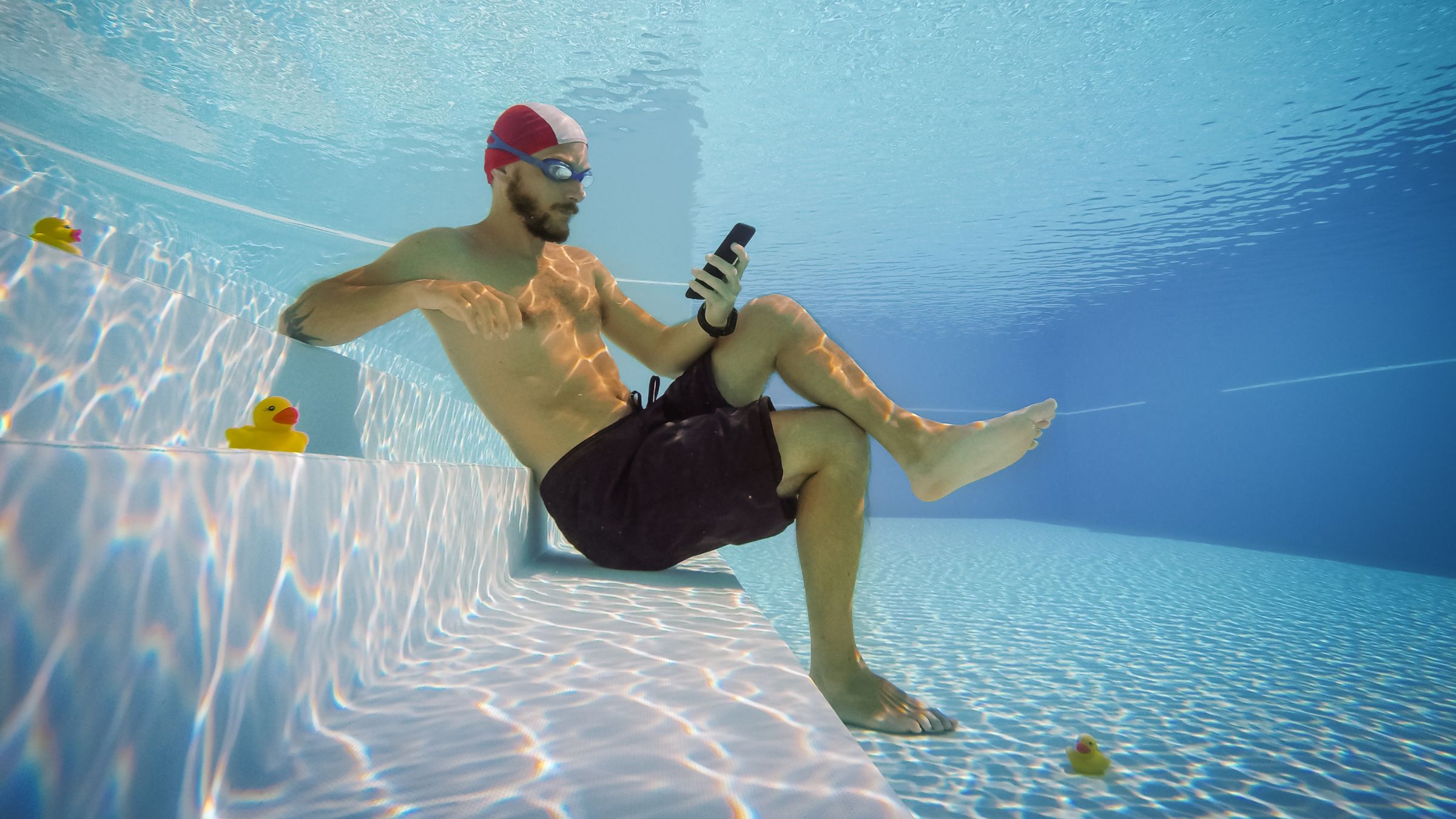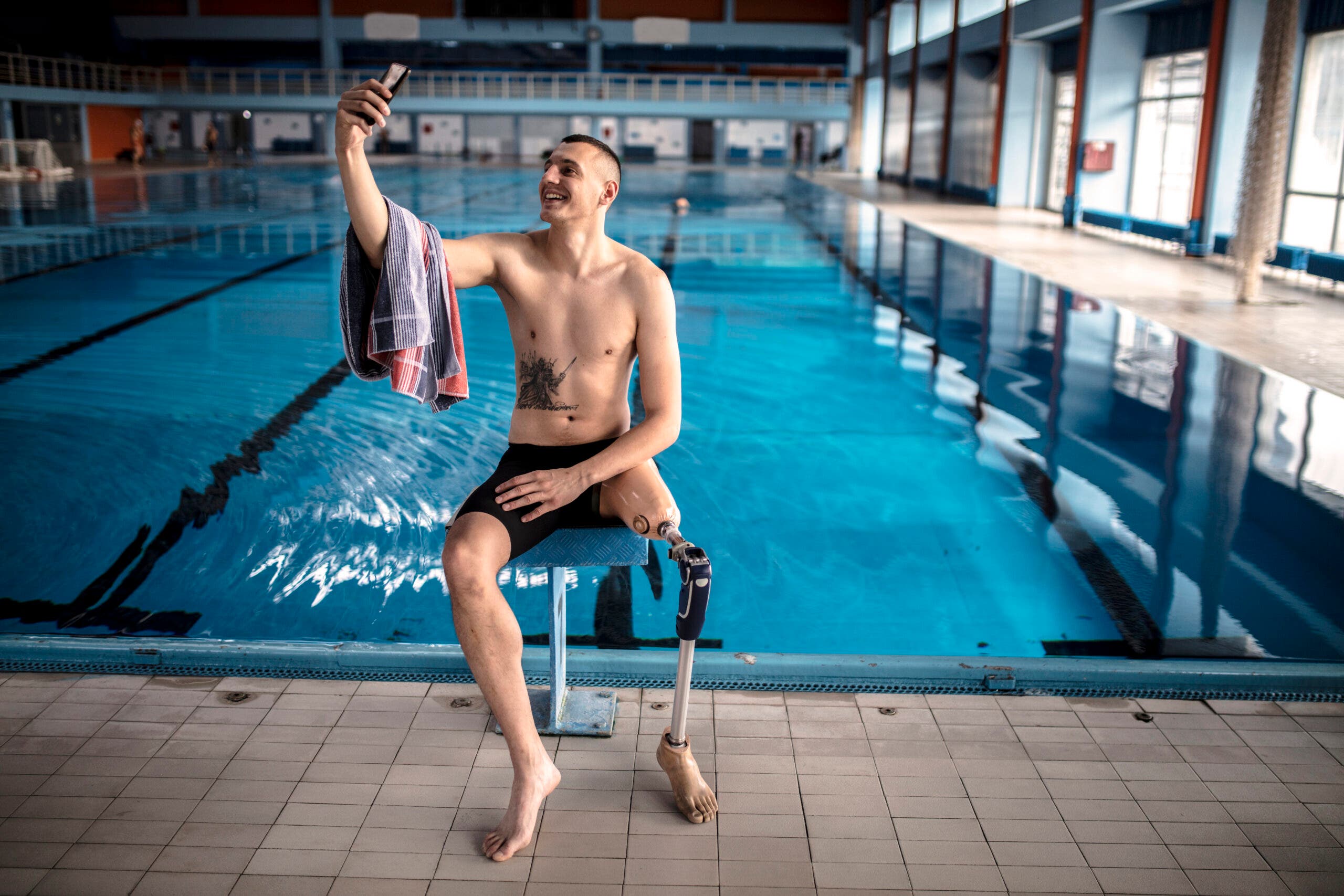Your Phone is Wrecking Your Swim Workout

Using your phone before your swim workout can derail your session before it even gets started. (Photo: Getty Images)
If you have a tendency to scroll through Instagram in the hour or two before a training session, you might want to put down your phone and find a different way to prep for workouts. A study conducted by Brazilian researchers says that might just be the ticket to a faster swim split.
The study showed, in short, that using social media on smartphones before training blunted improvements in performance in high-level swimmers when compared to a control group that watched videos about the Olympic Games instead. This same research group has also found that social media can impact performance among volleyball players, and indeed a similar effect seems likely to be found in relation to virtually every sport or other endeavor that requires focused concentration.
How social media is slowing you down
“Generally speaking, browsing social media is known to negatively impact attention,” explains Dr. Alexander Lapa, a psychiatrist based in the United Kingdom who was not involved with the study.
“There have been numerous studies proving how social media has a negative effect on cognition and mood,” and social media has also been shown to have a negative impact on focused attention, “something crucial for goal-directed behavior.”
Dr. Laurie Craigen, an associate professor of mental health counseling and behavioral medicine at Boston University School of Medicine – and herself a high-level swimmer, having swum the English Channel in summer 2024 – noted that “depending on the space you’re in mentally, social media could be motivating.” However, by and large, endlessly scrolling social media can sap your mental energy reserves.
Dr. Raffaello Antonio, a counseling psychologist and clinical director/founder of Therapy Central in London, says the problem comes down to “cognitive load and distraction. Social media, being a whirlwind of information, images, and interactions, places a significant cognitive load on users. The bombardment of stimuli requires the brain to process vast amounts of information in a short span.”
For example, one minute, you’re processing your friend’s vacation photos, the next you’re “parsing the nuances of a heated political debate,” Antonio says. “This overstimulation could detract from the mental clarity needed for optimal performance in the pool.”
Social media is also well known for provoking intense emotional reactions, with many of those responses settling into inevitable, sometimes uncomfortable, and often unfair comparisons between yourself and what you’re seeing online.
“It’s that saying, ‘comparison is the thief of joy.’” Craigen says. If you’re seeing posts from other athletes who you know to be about your same pace but who are “humblebragging” and posting numbers that seem superior to your own capabilities, that can make you feel worse about your own abilities.
Actual physical changes can also result from extended use of social media, Antonio says. “If an athlete gets used to the quick dopamine release from social media, they might find the longer, more sustained effort of training less immediately gratifying.”
What’s more, “physiologically, staring at a screen can strain the eyes, and being in a stationary position can lead to physical stiffness,” which is certainly detrimental to performance.
It’s also true that social media can negatively impact your motivation, as you get sucked further down the rabbit hole of endless TikTok videos.

Skip the Instagram Reels – watch this instead
Still as with any tool, social media can be both good and bad, and a lot of that distinction comes down to how you use it.
Study authors did not respond to requests for interview, but Lapa suggested that “a deeper understanding of how the athletes interacted with social media would be insightful” in helping determine exactly what the takeaway for athletes should be.
He also noted that by showing the control group Olympic Games videos, the researchers may have unwittingly boosted the performance of participants who were in the control group.
“There’s a concern that viewing Olympic Games content might not be neutral, but rather could positively influence the participants. This is because the content closely aligns with their subsequent activities and might inadvertently boost their motivation to perform.”
All the same, you may want to be careful about your use of social media in the 30 to 90 minutes before training. If you’re going to use social media, Craigen recommends evaluating where you are mentally before diving in. “Be mindful and intentional about which sites you’re following.”
For example, she says coaching sites, where an expert offers insights that can improve swim technique, could be a big boost. You might also seek out sites where you know you’ll come across motivational content; this can also help you focus on your upcoming session to improve performance.
But if you know you’re likely to stumble across the random workout post and obligatory selfie of a rival crowing about their swim times, that could backfire and make you feel worse.
It’s not always easy to know which type of post you’ll encounter when you hop on Facebook or Instagram, but muting certain accounts you know have created negative feelings in the past is one way to avoid the problem. Another is to simply put down the phone and tune into your own thoughts, feelings, and intentions for the workout ahead.
After all, a mindful training session always yields better results than one suffused with distraction, self-doubt, envy, and the inevitable comparisons to those who love to paint a pretty picture of perfection online.
RELATED: Afraid of the Swim? Here’s How Mindfulness Can Help